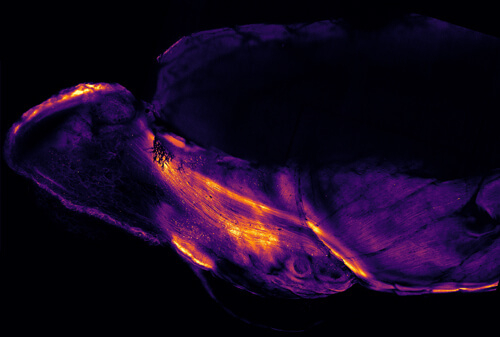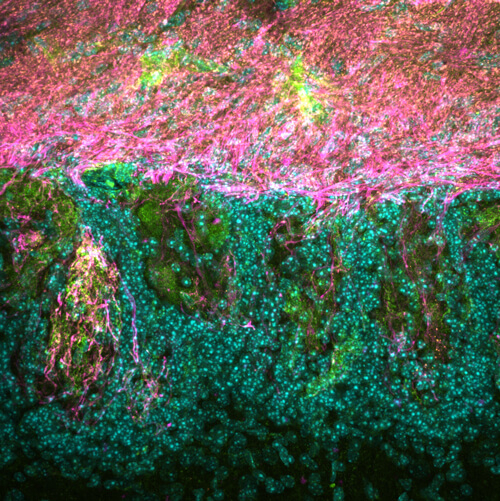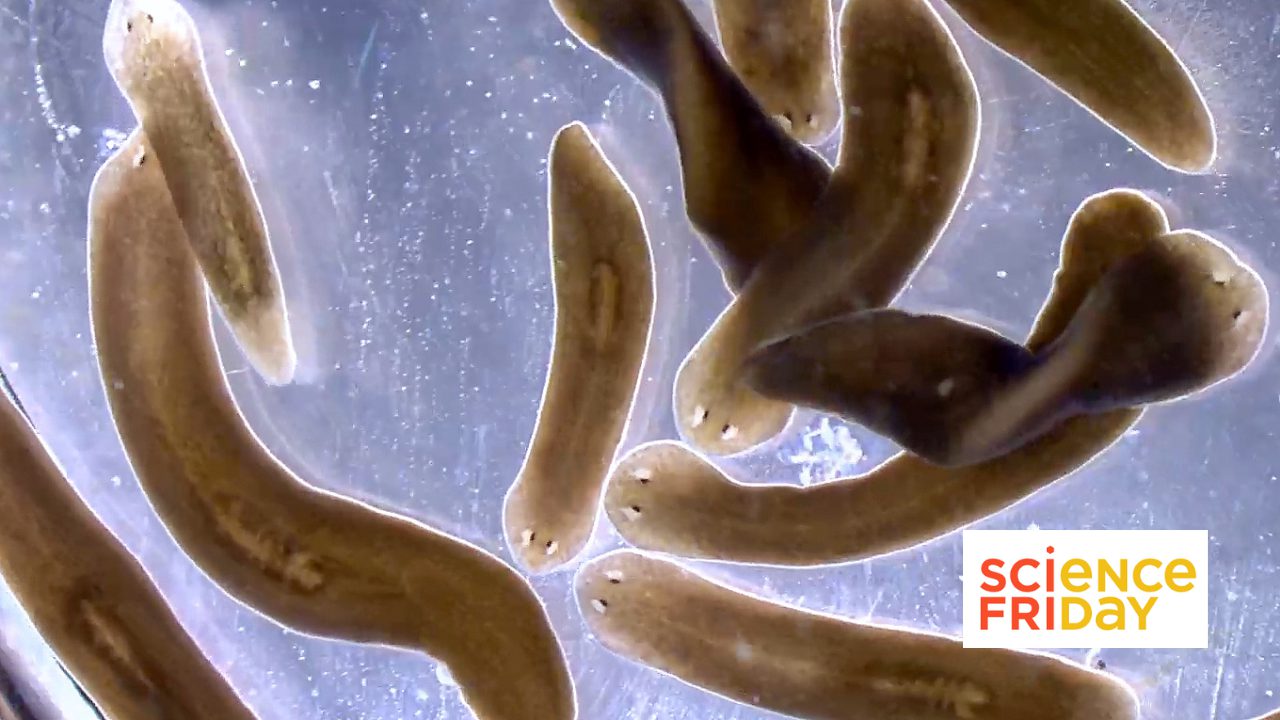In The News

07 January 2026
Investigator Kamena Kostova, named ‘Cell Scientist to Watch’
From the Journal of Cell Science, Investigator Kamena Kostova named a 'Cell Scientist to Watch'
Read Article
Video
The lab investigates the complex connection between neurons that link sensation to behavior.
Postdoctoral Researcher Ai Fang, Ph.D., at the Stowers Institute provided a #LookInTheLab highlighting the research in the Yu Lab.
Stowers Investigator Ron Yu, Ph.D., works to uncover how neurons in the brain are associated with sensation and behavior, primarily in the way humans and other animals respond to odors and pheromones. The lab investigates the complex connection between neurons that link sensation to behavior.

The mouse olfactory bulb, a part of the brain that receives sensations of smell from the nose, also receives nerve cell inputs from other brain regions that can affect how odor information is processed.
“In the lab, we are mostly studying olfaction in the mouse model. In the environment there are so many odors around. We are looking at how mice and humans are processing those odors and how the sensation works with those odors,” said Fang.
Uncovering the neuronal mechanisms can advance scientific understanding of nervous system development and neurological diseases.
The team is investigating how developmental and aging processes affect the sense of smell. The inability to smell is often the earliest sign of neurodegenerative diseases such as Alzheimer’s and Parkinson’s.
Along the tour, Damie Shallie, Ph.D., another postdoctoral researcher at the Institute, showed microscopic images that she is currently studying.

Nerve fibers in the mouse olfactory bulb are highly organized. Fluorescent labeling helps scientists visualize individual nerve fibers and their precise arrangement and connections within the nervous system.
“I work on understanding what is responsible for the regenerative power of the olfactory sensory neurons in the olfactory system,” said Shallie.
Shallie explained the work she does using images of a mouse olfactory epithelium, or OE, which is a thin, cellular tissue that runs along the roof of the nasal cavity that is involved in smell.
The Yu Lab’s work took an interesting turn at the start of the pandemic. Over the past few years, coronavirus infection has stripped many people of their sense of taste and smell. Since then, the Yu Lab has been investigating why this happens and how patients suffering from loss of smell can recover.
“After Covid infections, some patients lost smell. Our study will help us understand how they can regain smell after recovery,” said Fang. “For the last few years, we’ve been studying the regeneration of the olfactory sensory neurons. The olfactory sensory neurons sense the odors from the environment, which is very vital for smell of both humans and mice. Our study will help us build concepts surrounding this.”
Additional research within the lab focuses on physiological and theoretical studies of how neuronal information is processed by the brain.
In The News

07 January 2026
From the Journal of Cell Science, Investigator Kamena Kostova named a 'Cell Scientist to Watch'
Read Article
#Stowers25: Celebrating 25 Years
06 January 2026
Alejandro Sánchez Alvarado, Ph.D., reflects on a year of discovery, gratitude, and the community that helps support our mission.
Read Article
In The News

01 January 2026
From Science Friday, President and CSO Alejandro Sánchez Alvarado talks about the science of regeneration and the biology lessons we can carry into the new year.
Read Article
